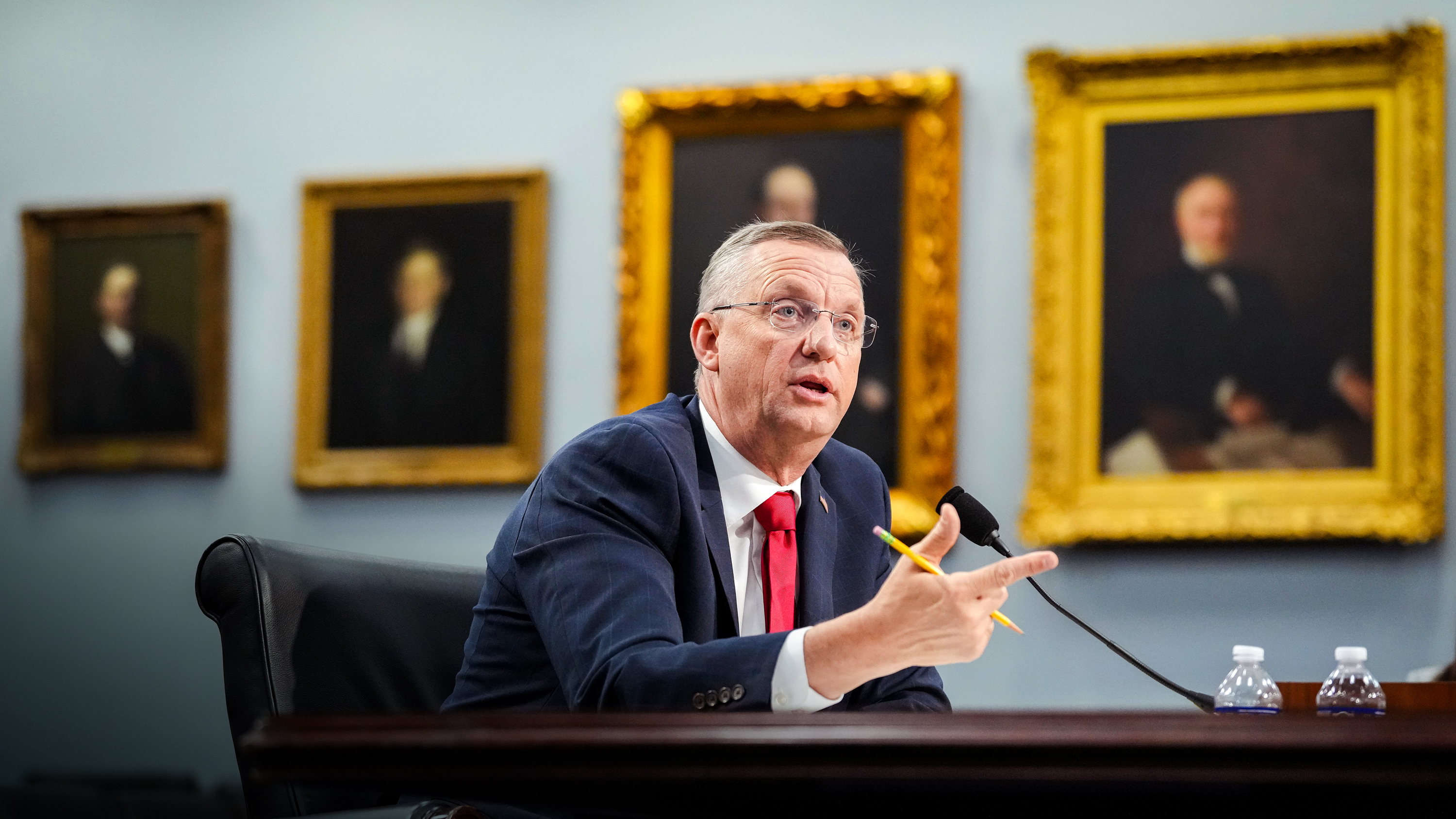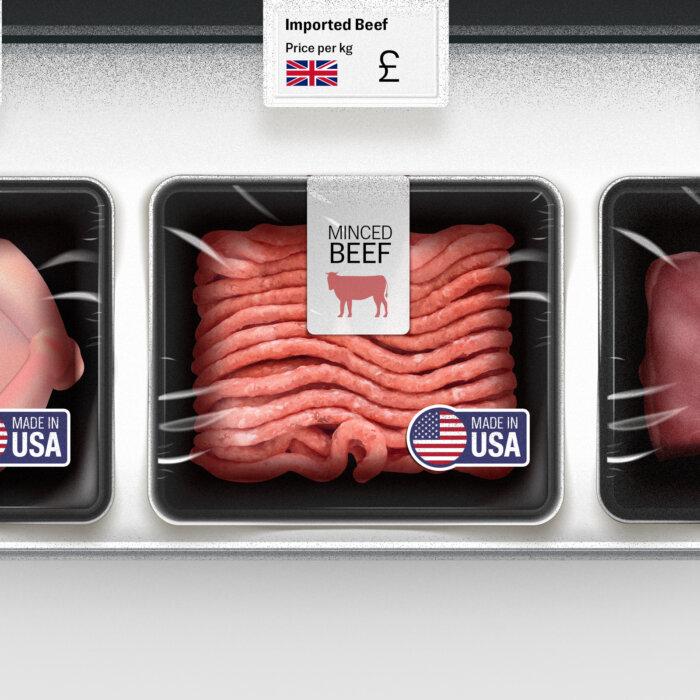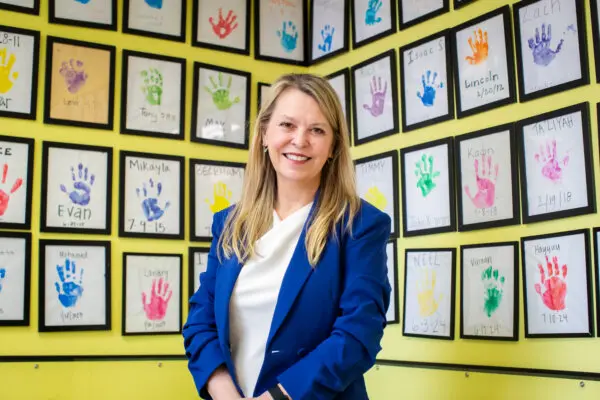Secretary of Veterans Affairs Doug Collins didn’t always want to be a politician, but he has long had a desire to serve others.
The 58-year-old native of Gainesville, Georgia, chose pastoral ministry as his first career. Thirty years later, he finds himself leading the sprawling government agency that serves more than 17 million veterans of the U.S. armed forces.
On Feb. 5, Collins became the 12th secretary of the Department of Veterans Affairs (VA), a Cabinet-level position that makes him one of 15 key advisers to President Donald Trump.
The road between those two positions included more than 25 years as a military chaplain, a tour in Iraq, graduation from law school, and multiple terms as a state and federal lawmaker.
The thread connecting those diverse experiences is faith, according to Collins.
The Road to Washington
Collins married Lisa Jordan in 1988, the same year he graduated from North Georgia College and State University.In an early indication of his interest in politics, Collins interned for then-Rep. Ed Jenkins (D-Ga.) while still a student.
The call to ministry was stronger, however, and Collins went on to attend New Orleans Baptist Theological Seminary, graduating in 1996. His wife became a career educator in Georgia public schools.
He pastored at Gainesville’s Chicopee Baptist Church from 1994 to 2005, leading the growing congregation to build a larger facility in the late 1990s.
Along the way, Collins joined the U.S. Air Force Reserve as a chaplain, eventually rising to colonel, a rank he continues to hold. From 2008 to 2009, he served a combat deployment at Balad Air Base, near Baghdad.

He credits his father, retired state trooper Lenard Collins, with inspiring his shift to public service after more than a decade in pastoral ministry.
Collins successfully ran for the Georgia House of Representatives in 2006 and graduated from the John Marshall Law School in Atlanta the following year.
“I’ve always felt God was going to lead me into public service at some point,” Collins told The Gainesville Times shortly after his election.
After three terms in the statehouse, Collins was elected to Congress in 2012 and served until 2021.
In January 2020, Collins announced his candidacy for the U.S. Senate, running in a special election to fill the remainder of Sen. Johnny Isakson’s term after Isakson retired for health reasons.
Veterans First
As VA secretary, Collins leads the largest health care system in the country. The Veterans Health Administration provides care to more than 9 million veterans at nearly 1,400 facilities.Collin sums up his approach to the job in two words: “Veterans first.”
That clarity of focus appears to make Collins more willing to consider innovative approaches and push for results.
One example is his willingness to bypass traditional media and communicate directly with veterans.
Collins took to social media about a week after taking office to quash rumors that veterans’ benefits were being cut.
Speaking with a veteran influencer on X, Collins spoke of his initiatives to connect veterans who are contemplating suicide with support systems. About 22 veterans die by suicide each day, according to an estimate from the VA.

The secretary explained his philosophy: “What is our return on investment? Are we actually helping a veteran?”
To ensure a better result, Collins aims to redouble efforts to enable veterans to use community-based health care services when prompt care is not available at a VA hospital or clinic.
Collins said that will no longer be the case and that expanded health care options will be available.
Faith to Fight
Collins inherited an agency plagued by complaints of inefficiency, a reputation he is determined to change. Beneath that determination to succeed is the same faith and desire that inspired Collins’s pastoral work.“Faith makes me want to help others,” he said. “It makes me compassionate, but it also makes me firm. ... Sometimes you have to stand and fight.”
There are signs of early progress.
There has been a significant reduction in the number of disability applications that aren’t processed within 200 days, Collins said. The backlog had reached more than 260,000 during the COVID-19 pandemic and had since remained largely unchanged. He directed his staff to work intently on that issue.

“We’re under 200,000 for the first time in over two years,” Collins said.
The agency has also reformed its service to Gold Star families—those who have lost a loved one in the line of duty.
“We were too much on what I call the clinical side,” Collins said, meaning that VA representatives often described what services they provide to families in businesslike terms.
He directed the agency to take a more compassionate approach, assisting families in a manner similar to that of funeral directors.
“We make sure that they get at least heard and cared for, because anyone going through that trial of a loss is someone who needs more support, and they also need answers,” Collins said.
“This job, for me, is taking care of people. ... There are things that are not worth compromising on.”
Doug and Lisa Collins celebrated 37 years of marriage in June. The Collinses have three adult children and attend Lakewood Baptist Church in Gainesville.

















